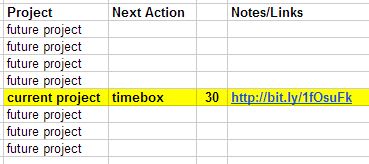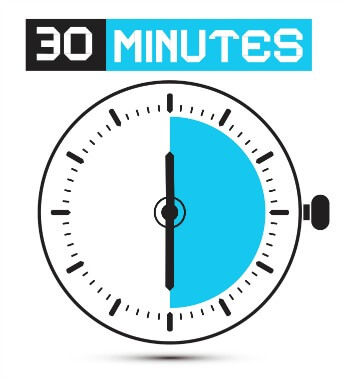3 Time Management Methods Most People Don't Know About
Whenever I deliver training there are three time management methods that I always teach.
I do so because I've used them myself for years -- they work and they're easy to do.
So I'm always amazed at just how many people don't know about them:
1. Use Closed Lists for Tasks
A closed list is simply a checklist of the tasks you want to do on any given day. The idea is that a limited list can only be reduced (unlike a traditional to do list that is constantly added to).
Here's how it works:
Throughout today, list what you want to do under tomorrow's date. Don’t do it until tomorrow, unless it is genuinely same day urgent. Otherwise, at the end of the working day, draw a line under the list. Don’t add anything to it.
The next day, when you start work, you will have a 'closed' list of tasks to work through.
It doesn’t matter whether you list your tasks digitally or on paper (although many tasks come from emails so if you use paper task diary at least keep your it near your desk). The key is to get it out of your head and to make your list do the hard work of remembering for you.
Personally I prefer paper planners, one for work and one at home, but use whatever you find suits you.
You can learn more about this strategy here.
2. Work on One Project at a Time
If you’re like me you will have several projects at any one time.
As far as possible, pick just one project and work on it until it is finished. Only then do you move on to the next one.
Of course, there will be times when you can’t make progress with a project (for example, you are waiting for something or someone). In this case start another one, but go back to the first one as soon as you can.
Keep an accessible master project list nearby so you can easily choose what to do and list new ones.
Here's an example of what it could look like:

This is one of the most important time management methods you can use to identify the projects that matter to you.
Tip #3 helps you actually do them:
3. Work in Blocks
This third of these time management methods applies to both tasks (single actions) and projects (multiple actions required).
Tasks
Always batch similar types of tasks together -- answering emails is a good example. It’s always faster and more efficient this way.
Organize your work to create ‘time pockets’ where you know you can do all your tasks in one go. Typically, 30 minutes is the bare minimum you need to make this work.
If you’re having trouble knowing where to start, use the Quick Win method.
Projects
Some projects are quick and easy, others seem to take forever to finish.
Whatever the nature of project, the Golden Rule is this:
Work on your current project every day, for as long as you want to.
I know this sounds crazy but it is the key to success with projects because it takes away the desire to procrastinate. To ensure you keep the momentum try time boxing.
I keep my projects on a web based spreadsheet via Google Docs. If I’m not near a digital device and not able to list a new project on it, I’ll ‘capture’ it on a scrap of paper or even turn my watch around as a quick reminder prompt.
So, every day, your list will consist of a finite number of tasks along with one (your current) project.
Which Time Management Methods Suit Which Time Pockets?
It all depends on how long you have got.

Under 30 minutes. Your best use of this time would probably be to batch some (or all) of your tasks and cross a few items off your closed daily task list.
Over 30 minutes. This allows you to block off some time to make some real progress on your current project.
Two Things to Remember
1. There is no hard and fast rule because what you do depends on how motivated you are to do it. You may feel like working on your current project for less than half an hour - not so efficient, but better than not doing it all all.
2. Always ask yourself, "Am I the person to do this, or could someone else do it?"
Have you tried any or all of these three time management methods?
If not, try them for one working week -- I think you'll be glad that you did.
- Home ›
- Time Management Strategies ›
- Time Management Methods

